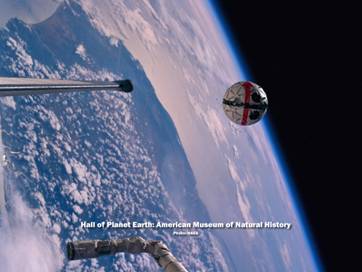|
Experience Knowledge Innovation™ |
|
|
Experience Knowledge Innovation™ |
|

Satellite/Scientific |
|
|
MDS personnel have supported the management/business operations and technical design and development of C4I and scientific oriented satellite systems. These systems are currently facilitating NASA environmental research and international defense communications. From planning and components architecture, to deployment methodology and related DACC /Network ops, MDS personnel have afforded the government unparallel technical oversight. We have supported the definition of business and operational objectives, derivation of detailed operations concepts, development of business processes, analysis of legacy systems and related transition concepts and plans.
TRMM, EOS Program MDS personnel participated in maiden voyage NASA TRMM program development activities. The Tropical Rainfall Measuring Mission (TRMM) is a joint space mission between NASA and the Japan Aerospace Exploration Agency (JAXA) designed to monitor and study tropical rainfall. The term refers to both the mission itself and the satellite that the mission uses to collect data. TRMM is part of NASA's Mission to Planet Earth, a long-term, coordinated research effort to study the Earth as a global system.
The image above shows estimates for rainfall contributed by named tropical cyclones. Although not a named storm, Tropical depression 16 was included because it caused extensive flooding in Central America. Areas with over 600mm (~ 23.6 inches) of tropical cyclone rainfall are shown in bright red over eastern Cuba and western Haiti. A small area of southern Haiti is shown in dark red where totals of tropical cyclone rainfall were estimated to be over 850 mm(~ 33.5 inches). The TRMM Microwave Imager (TMI)
(TMI) is a
passive microwave sensor designed to provide quantitative rainfall
information over a wide swath under the TRMM satellite. By carefully
measuring the minute amounts of microwave energy emitted by the
Earth and its atmosphere, TMI will be able to quantify the water
vapor, the cloud water, and the rainfall intensity in the
atmosphere. It is a relatively small instrument that consumes little
power. This, combined with the wide swath and the quantitative
information regarding rainfall make TMI the "workhorse" of the
rain-measuring package on Tropical Rainfall Measuring Mission. |
Scientific, Security, Communications Areas:
IT Systems Development/Integration Areas:
|